|
On August 15th, the Solemnity of the Assumption of our Blessed Virgin Mother into heaven, we celebrate Mary’s completion of life on Earth and her existence in eternity with Jesus. We can reflect on her sinless life as she was chosen by God to be the mother of Christ and also on her example of motherhood, grace, and virtue.
On this Marian feast, I feel a special closeness to the Blessed Mother because I recently found out that, I too, am preparing to be a mother. I ask for Mary’s intercession for a healthy pregnancy often and I hope to love more each day like she did. From her moment of saying, “Yes!” to God at a young age, to her worried searching for Jesus in the Temple, and even to her urging of her son at the Wedding at Cana to begin his ministry, Mary is a mother we can relate to. Her faith in God kept her focus on Jesus and his growth, safety, and well-being on Earth in order to ensure that he would fulfill his life’s mission to save us all from sin. Mary is the mother we can all imitate. Mary’s life was probably not an easy one. She faced speculation and ridicule from those in her community when she gave her Fiat and said yes to God’s plan. She lived at a time when a pregnant and unwed woman could be outcast from everyone she knew, but she persisted and trusted. Enduring these hardships could create doubt in someone’s mind and dissuade a person, but Mary stayed true to her grace-filled faith. I like to imagine that her cousin Elizabeth was a kindred spirit for Mary, someone who could support her and was also full of grace and faith. Joseph too, said “Yes!” to God, took Mary as his wife, and raised Jesus with strength and grace. He was a supporter for Mary and loved her, fully knowing his purpose as a protector and provider for the family. Throughout her life, we know that Mary reflected and pondered on the many blessings she had received. Scripture tells us she held them in her heart. Let us appreciate those special moments in our lives, too! Recently, I’ve been trying to take a moment each day to “hold things in my heart” and reflect on the goodness of God. Sometimes it’s when I see the sunshine for the first time that day. Other times it’s at the end of the day in a more reflective manner, and still other times it is in a crucial or stressful moment as I search for the good in what’s going on around me. There are many times throughout our days in which we could pause, reflect on a blessing, and have a grateful moment of prayer. On this Assumption, I challenge you to imitate Mary and learn from her grateful heart in this way. Below is a prayer from the Liturgy of the Hours, a method of prayer that seminarians, priests, religious sisters, deacons, and lay people participate in all over the world. This particular prayer is prayed on the feast of the Assumption. As we celebrate the Assumption of Mary, let us look to her example of faith and devotion and let us ask her to continue to bring us closer to Christ and help us to live for his glory. Almighty God, You gave a humble Virgin the privilege of being mother of your Son, and crowned her with the glory of heaven. May the prayers of the Virgin Mary bring us to the salvation of Christ and raise us up to eternal life. We ask this through our Lord Jesus Christ your Son who lives and reigns with you and the Holy Spirit, one God, forever and ever. Amen.
2 Comments
The last full week of Lent, before Holy Week begins, has always been a bit of a struggle for me. Usually by this time, I’ve already slipped up on my voluntary Lenten penances once or several times, I’m ready for the Triduum to just be here already, and I’m completely over the color purple. My husband and I jokingly call this spiritual sluggishness or restlessness “the end-of-Lent slog.” It seems like these particular days before Holy Week ramps up are when we are tempted the most to go back to the things we’re fasting from or to just throw in the towel on Lent because we’re “basically done.” My husband and I pray Evening Prayer from the Liturgy of the Hours together, and one of the readings that has resonated with me this Lent comes from St. Paul. In his first letter to the Corinthians, he encourages his readers to imitate well-trained athletes and to “run so as to win.” He continues: “Every athlete exercises discipline in every way. They do it to win a perishable crown, but we an imperishable one.” When I was a teenager, I viewed Lent as a sprint: choose some really intense or difficult penances, struggle to maintain an unrealistically high level of spiritual rigor, and then after Easter gleefully go right back to doing and eating all the things I had given up while tossing out all the spiritual growth I’d supposedly just undergone. As I matured in my faith, I came to understand that Lent is not meant to be a temporary, intense lifestyle challenge; rather, it is the start of a marathon. It’s a specific time to motivate ourselves to grow deeper in our relationship with God by letting go of the things that keep us from Him and by doing more difficult penances for our sins and vices—preferably by abstaining from them and thus breaking our addictions to or reliance on them. Like St. Paul says, we ought to treat our spiritual lives the way that athletes treat their sport: they dedicate themselves to it, setting higher and higher goals, training their bodies, denying themselves in order to maintain peak physical performance. And all of this to win a crown of leaves! How much more important, then, are the things we take on during Lent? We are training and preparing our souls for an eternity in Heaven with God, not for gold medals or accolades here on earth. Do we approach Lent as something that we need to win right now, this year? Or as something that trains us and jumpstarts us for the rest of the year—and the rest of our lives? Do we find ourselves fasting from the same things every year because we couldn’t maintain virtuous habits once the Easter bells started to ring? Or have our old Lenten penances and prayers become so incorporated into our daily lives that we can build upon them with each new Lenten season? Once I realized these things about Lent, all those times I “failed” in my Lenten practices didn’t seem so terrible anymore. I no longer want to “quit” Lent when I accidentally slip up on my penances or when I find myself giving in to temptation. If Lent is meant to jumpstart us on spiritual practices that we continue for months and years afterward, then we have to acknowledge and move past the stumbles and crashes when they come. Our failures to live up to our promises to God are still regrettable, certainly, but when we are in it for the long haul, our stumbles are also much more forgettable. St. Paul shows us that in “forgetting what lies behind but straining forward to what lies ahead” we must continue in our “pursuit toward the goal, the prize of God’s upward calling, in Christ Jesus.” We must acknowledge and repent of our broken pasts and our sinfulness, but we also must look with hope toward the future that Christ has made possible for us. If we allow ourselves to dwell too much on our failures, our concupiscence, our weakness as mortal men, then we can lose sight of the ultimate goal for which we strive: to be with Christ in Heaven. As Lent moves into Holy Week and Eastertide, let us strive to be like Paul’s well-disciplined athletes, winning the marathon of life by training our souls for the eternal prize of Jesus Christ. For more resources to accompany you throughout the Lenten season, please click here. Question for Reflection: How can you build on your Lenten practices throughout the liturgical year? For much of the past year my work as an auditor has had me traversing the country each week by plane, train, and automobile to attend to various client needs. The destinations often change depending on the assignment; one week it might be Philadelphia and the next it might be Los Angeles, one month it could be Denver and the next Minneapolis. While exploring new cities and meeting new people is exciting, I’ve also found incorporating the logistics and time it takes to go from point A to point B each trip adds another layer of exhaustion onto what is usually an already busy schedule. On a recent Monday morning flight, while praying Morning Prayer, I came across this reading from Isaiah 55:6,8-9; Seek the LORD while he may be found, call upon him while he is near. For my thoughts are not your thoughts, nor are your ways my ways—oracle of the LORD. For as the heavens are higher than the earth, so are my ways higher than your ways, my thoughts higher than your thoughts. I looked out my window at the view from 35,000 feet and saw an expanse of plains surrounding small midwestern towns that eventually morphed into suburbs and cities. In each locale there were thousands of people going about their day, unaware of the part they played in this picture I saw. “For as the heavens are higher than the earth, so are my ways higher than your ways.” I paused and thought about how God’s view of our own lives must look something like this. We, just like the people on the ground, go about our day unaware of the part we play in the bigger picture He sees. So often I find that I allow the stresses to become my sole focus of the day: a difficult audit assignment, a cancelled flight, maintaining relationships with friends and family while on the road, etc. While these daily stresses need our attention, in the big picture of our lives they are small blips on the radar that we can’t allow to distract us from seeking the Lord. Ultimately it is our continuous pursuit of God that allows us to press through our daily challenges, large or small, trusting in the knowledge that He has the view of our lives from 35,000 feet and will never fail us. Questions for Reflection: Is there an instance or time in your life when things didn’t go according to your plan? Has God’s way of doing things in your life ever proven more fruitful or beneficial than you could have anticipated? My sacrifice, O God, is a contrite spirit; a contrite, humbled heart, O God, you will not scorn.” – Psalm 51: 19 During my graduate program at The Catholic University of America, I had a chance to take a class on the Psalms. Not only did I learn a lot of information about the psalms, but also my perspective on prayer changed. The professor taught us about the humanity of the psalms: each one is riddled with human emotion and experience. The psalms show us that our prayers to God do not have to be perfect. Rather, our prayers should be honest because we are placing our trust in Him. This Lent, I decided to pray more with the psalms. Over the past few weeks, I’ve done this by praying the Liturgy of the Hours and doing Lectio Divina. Praying with and contemplating the psalms this Lent has really helped deepen my relationship with God. It has also helped me in my role as a Youth Minister. So far, God has reminded me of two principles that we should remember while reading the psalms: 1) the psalms are a mirror to your soul and 2) You should allow the psalms to be a guide to your life. One psalm that the Church uses throughout the season of Lent is Psalm 51. Psalm 51 is titled “The Miserere: Prayer of Repentance” and the first two verses tell us that this prayer is the prayer David prayed after the prophet Nathan had told him he had sinned (cf 2 Kings 11-12). By praying this psalm throughout the season of Lent, we are reminded how much we are in need of God’s mercy. No matter what we’ve done or what we will do, God always calls us back to himself. He constantly invites us to repent for our sins and be reconciled with him. God’s mercy awaits us in the Sacrament of Reconciliation. We are all sinners. By using Psalm 51 as a mirror to our own souls, we know that we are in need of repentance. Through the Sacrament of Reconciliation, the Lord can wash us so that we can become “whiter than snow” (Psalm 51:9) Psalm 51 is also a great prayer to guide a Christian’s life. We are imperfect beings living in a broken world, and we encounter sin every day. It is only through God’s abundant compassion that he blots out our sins. Verse 12 says: “A clean heart create for me, God; renew within me a steadfast spirit.” As Christians, we are called to repentance and conversion. God always calls us to allow him to change our hearts to bring us closer to his own heart. By continually offering our own hearts to him, God will do great things throughout our lives. Lent is a time of repentance and turning our hearts back to God to prepare for Easter. Through praying with Psalm 51, we can be reminded of our own brokenness. We can also be reminded to offer our heart to God in every prayer and action that we do in order to allow him to create in us a clean heart. Question for Reflection: How can you pray with the psalms this Lent? Choose one psalm this week to reflect on. "Good morning and welcome! Today, we celebrate the Xth Sunday in Ordinary Time. Please stand and join in singing hymn number…" Most of us will hear these words, or words very close to them, for over thirty Sundays a year. After the joyful season of Christmas, it can seem too ordinary, almost boring, to return to Ordinary Time in the Liturgical Year. Instead of the extraordinary stories of Christ's birth in the Incarnation, we've gone back to the Jesus stories many of us grew up hearing: Jesus healing lepers, chastising Pharisees, and preaching to crowds. While Jesus’ ministry is anything but ordinary, our familiarity with the stories of the Gospel often desensitizes us to their extraordinary depth and power. It’s much easier to see the seasons of Christmas and Easter, as well as Advent and Lent, as extraordinary. They're special seasons of the Liturgical Calendar, set aside to celebrate and reflect on the greatest mysteries of our faith: the Incarnation and the Passion and Resurrection of Christ. These liturgical times make us feel our faith in a more visceral way. There's nothing like the gut-wrenching Passion narrative or the beautiful story of the Nativity to set our hearts ablaze for Christ! But if our experience of the Christian faith was nothing more than an emotional high, we would never be able to see Christ in anything but the heavily emotional experiences. That's what Ordinary Time gives us: it sustains our faith between the emotional highs and lows of Christ's birth, death, and resurrection. It reminds us that God is often most present to us in our ordinary humanity. May we not forget that Christ himself lived ordinarily for thirty years as a carpenter’s son in Nazareth. It's in Christ's day-to-day ministry that He meets people where they are and experiences the human condition with them. When He forgave the woman at the well, it wasn't at a big celebration, but in the very ordinary act of gathering water. When He called Zacchaeus down from the sycamore tree, all He wanted to do was share a meal. When He flipped the moneychangers' tables at the Temple in anger, He was there for the weekly observance of the Sabbath. Ordinary Time isn't about the humdrum monotony of life. It's about the slow, incremental action of the Holy Spirit in our lives. It's about, as St. Vincent Pallotti said, seeking God in all things. Just as we get up every day and go to work, we are called to use Ordinary Time to get up every day and give our best to God. So what can we do to live Ordinary Time well? The options are endless! —Maybe you like studying Scripture, but don't know where to go deeper? Take a look at the practice of Lectio Divina. —If you feel a strong draw to the Liturgy, try attending Daily Mass once a week or following the Liturgy of the Hours. —Do you sense a call to serve more with more intentionality? Explore the needs in your community. It doesn't have to be a Church ministry to be service! After all, we're given the instruction to "Go forth!" at the end of every Mass. The beauty of our faith is that there are so many ways to experience God in our lives, to connect with Him and bring His message of love to the world. It doesn't matter which way we choose to work on our relationship with Him, so long as we do so with intention. A healthy challenge for us all might be to pick just one practice to begin making into a habit during Ordinary Time. May we invite God to shift our perspective on the “ordinary” and help us see His extraordinary presence and grace in our journey of faith! What do we imagine when we think of the Holy Spirit? Perhaps we envision tongues of fire, as the Apostles experienced in the Upper Room during Pentecost. Perhaps we think of a dove, as we read in the Baptism of Jesus at the Jordan River. Maybe we think of wind, a ghostly figure, or even a loud gathering of people speaking in tongues or falling to the ground. Many within the Catholic Church are unfamiliar with, afraid of, or simply unaware of the Holy Spirit and His role within our Church. This is perhaps because the Holy Spirit is the least “safe,” “personal,” or “containable” person of the Trinity. The Holy Spirit was not sent to earth in the form of a person who healed, preached, and died for our sins, as Jesus was. The Holy Spirit is not called “Abba, Father,” and was not the primary face of God in the Old Testament. Though the Holy Spirit has existed since the beginning, cited in Scripture at creation as the spirit of God hovering over the waters, and is referenced throughout the Old and New Testaments through Pentecost and beyond, many find it difficult to define, connect to, or have a relationship with the Holy Spirit. My own relationship with the Holy Spirit did not begin until my third year of college. Recent events in my life had left me profoundly grateful, so I began to spend five to ten minutes each morning simply giving thanks to God and invoking the Holy Spirit. It started with thanksgiving for the more obvious things: a roof over my head, food on the table, family. As I continued, I grew in my perception to see the little moments of grace in each day. I would thank God for a chance conversation with a friend, the insightful part of a particular lecture, or the flower that had blossomed in my neighbor’s yard. I invited the Holy Spirit into my life, and spent the morning in thanksgiving and praise rather than petition. As a result, I started experiencing a profound, unshakeable joy. It was as though I was seeing the world with new eyes—the eyes of gratitude and grace, the eyes of God. I was becoming more Christ-like without really trying, because my heart was filled with the love of God, the presence of the Spirit. The Holy Spirit has been called the manifestation of the love between the Father and the Son. As the third person of the Trinity, the Holy Spirit reveals the Father to humanity and enables us to become like Christ. It was the Holy Spirit who was beginning to transform me into a disciple and instilling joy in my heart. We often miss the work of the Holy Spirit because the Spirit “does not speak of Himself…[but] makes us hear the Father's Word”—which is Christ (CCC 687). As Christ himself said to the Apostles, the Spirit “will not speak on his own, but he will speak what he hears” (John 16:13). The Holy Spirit is also consubstantial with the Father and the Son—meaning that the three persons of the Trinity are inseparable while being distinct in their roles. The role of the Holy Spirit is the building up of the Church and her people. The Spirit of Truth guides us to truth (cf John 16:13). He is the person of the Trinity sent by Christ to be most present in the world today—our Advocate. Because of the work of the Spirit, Christ can say, “I am with you, even to the end of time” (Mt. 28:20). How can we come to know the Holy Spirit? In prayer, the liturgy, the sacraments, Scripture, Church teaching, the witness of holy men and women, and in many other ways (cf CCC 688). As we celebrate Pentecost, I invite you to start spending a few minutes each day with the Holy Spirit. Invite the Spirit into your Scripture reading, asking Him to reveal His wisdom and help you apply it to your own life. Call upon the Spirit in prayer and thanksgiving throughout your day. Learn more about the sacraments, which reveal the inner life of the Trinity, and participate more deeply in them. Read the lives of the saints, men and women who are examples of the holiness made possible by the Spirit. May these practices lead to a Pentecost and renewal of the Spirit in our own lives. Together, let us say, “Veni Sancte Spiritus, Come Holy Spirit!” (CCC 2670-72). May His fire purify our hearts, leaving only the love of God, so that we may in turn set the world on fire.
To celebrate the Catholic Apostolate Center passing 50,000 "likes" on Facebook, Communications and Social Media Intern Andrew Buonopane created a list of 50 Ways to Enjoy your Faith. This is the third post in a five-part series where we'll share the whole list. Check back on the first Tuesday of the month for another installment! #29 - Devotion to St. Joseph St. Joseph is a great role model for all Catholics. Through his devotion to Mary and Jesus St. Joseph teaches us about familial love. The month of March celebrates St. Joseph including on his feast day on March 19th! #28 - Learn what it means to be priest, prophet, and king We often hear about Christ being referred to as priest, prophet, and king, but did you know that these three titles can also apply to other areas of the Church as well? Take some time to research how you can live out the role of priest, prophet, and king in your own life. #27 - Assume the best intentions It’s easy to rush to judgment, but sometimes we can be too hasty. This Lenten season, instead of getting frustrated and making quick judgments, try to see the best in everyone even when it is difficult. #26 - Learn about the New Evangelization The New Evangelization is talked about a lot, but have you taken the time to learn more about it and how you can be a model of the New Evangelization in your own life? Try checking out our New Evangelization Resource page to learn more! #25 - Make a friend! We can often become comfortable in our social lives, sticking with the people we are comfortable with. But making new friends is rewarding (even if it can be difficult to do). Try making a new friend this month and see how new a relationship can enrich your life. #24 – Take a friend to Mass Try inviting someone new to Mass this Sunday. Perhaps they are Catholic and haven’t been to Mass in a while or perhaps they have never been before. #23 - Liturgy of the Hours Have you ever prayed liturgy of the hours before? If not try it! Liturgy of the Hours is a great way to keep prayer a part of your entire day. For more information check out our Prayer and Catechesis resource page! #22 – Rosary The Rosary is a great way to show devotion to the Blessed Mother. If it’s been a while since you last prayed a Rosary, pray one this week! #21 - Faith & Reason Faith and Reason often can often be painted as at odds with each other. But in fact, they are very complementary. If it’s not something you’ve thought about before, check out this article where Pope Francis discusses how faith and reason intersect.
To read the previous installment in this series, click here: Part I | Part II Andrew Buonopane is the Communications and Social Media Intern at the Catholic Apostolate Center “Saint Thomas Aquinas, pray for us.” This simple invocation was the conclusion to my family’s Morning Prayer ritual. Every morning, for as long as I can remember, my family would pray together an Our Father, Hail Mary, Glory Be, and the St. Michael’s Prayer. We would conclude with the invocations of Saint Anthony (for a safe trip to school) and Saint Thomas Aquinas (for help with our studies). Today the day before the feast day of Saint Thomas, patron saint of students, and during Catholic Schools Week; I wanted to share my experience of education.
I attended public schools from first grade until I graduated from high school. I was not the only religious student in my grade (or even the only Catholic) but nonetheless I was labeled as the “token Catholic.” This label was at times a point of pride for me and at others a burden I wish I could evade. While it never hindered me from making friends, it still set me apart. I would take up defense of the Church’s often unpopular stance on social issues in class discussions. In some rare cases I even found that my thoughts on certain subjects were brushed off as being my opinion only because of my faith, and any evidence I supplied in support of that stance was ignored. While I received a well-rounded education, the school community was so concerned with being tolerant of all things that it became intolerant of ideas it perceived as being intolerant. After high school, I attended a Catholic college. This was my first real experience of having faith integrated into my formal education. There were numerous differences, but perhaps the most notable was the community. In every classroom, there were Catholic students whose beliefs varied widely, as well as students of other faiths or no faith at all. Regardless of who you were or what you believed, you were expected to support your opinion with reason. It was this environment that fostered a community of intellectual discussion and debate (which rarely turned into conflict). Every idea was heard, which allowed me to hone my own beliefs while also growing in faith. This community was truly welcoming and challenging to all—even when that meant a difference of opinions. Education should be a constant exchange of ideas. This exchange is not always smooth and simple, and that can in fact be a good thing. Saint Thomas’s two greatest works, Summa Theologica and Summa Contra Gentiles, incorporate the work of the Greek philosopher Aristotle (which, at the time that Saint Thomas lived and wrote, was just shy of heresy). He also conversed with philosophers of other faiths, most notably Islam. Despite this pushing of boundaries—or perhaps because of them—Saint Thomas is recognized today as one of the founders of modern philosophy. In his writings he addresses arguments and opposition to his theories head-on regardless of whom they came from. This boldness in spirit is what made him both an incredible student and teacher. It is also why, over eight hundred years later students—myself certainly included—ask for his intercession with their studies. As Catholics, it is our duty to build up communities where we can encounter both those who share our faith and those who do not. We can see this lived out in the challenging and formative words of our Holy Father. May we always seek to be students and teachers of the faith. Saint Thomas Aquinas, pray for us. Patrick Burke is a staff member at The Catholic University of America in Washington, D.C. “The fire of the Holy Spirit was sent down upon the Apostles at Pentecost in answer to their fervent prayer; ardent prayer in the Spirit must always be the soul of new evangelization and the heart of our lives as Christians.”
– Pope Francis (General Audience, May 22, 2013) Prayer. Sometimes we make it so difficult. I am not sure why. Maybe we think it needs to be very formal or formulaic? I know that I thought that for a very long time. There is certainly a place for formal prayer, be it communal, such as during the Mass or the Liturgy of the Hours or even private, such when use a formal written prayer. In fact, we Catholics have a love affair with our prayer cards, books, and other sacramentals, including candles, statutes, and icons. This is an excellent thing because “they prepare us to receive grace and dispose us to cooperate with it” (Catechism of the Catholic Church, n. 1670). They are, though, simply means, not ends in themselves. Means to a conversation with God or maybe more precisely, a dialogue. We might not consider it a dialogue. Fervent prayer, ardent prayer, in the way that Pope Francis is calling for is an on-going dialogue with God throughout our day, an awareness of the action and activity of the Holy Spirit permeating our lives. It is a seeking for God and finding God in all things, in every moment and in every place. St. Teresa of Avila encourages us to be seekers of God and St. Ignatius of Loyola calls us to “find God in all things.” St. Vincent Pallotti puts the two aspects together, as was often his way, and challenges us to: “Seek God and you will find God. Seek God in all things and you will find God in all things. Seek God always and you will always find God.” We certainly need to take time to be in communal prayer like those in the Cenacle or Upper Room at Pentecost. We also need to be in private prayer, setting aside time to go to our “inner room, close the door, and pray to [our] Father in secret” (Matthew 6:6). The Holy Spirit, though, is active and alive everywhere, if we but open our eyes to see and our ears to hear. Fr. Frank Donio, S.A.C., is the Director of the Catholic Apostolate Center This blog post was first published on October 26th on the St. Joseph’s College of Maine Theology Faculty Blog. Click here to learn more about our cooperative alliance with St. Joseph’s College Online Holy Saturday is one of my favorite days of the Liturgical Year. Since donning my first monastic-style altar server alb shortly after my First Communion, the celebration of the Sacred Paschal Triduum is not only the apex of the liturgical year, but mine as well. I always look forward to the day when Christ is in the tomb and we joyfully await the great Easter Vigil after sundown, with its elements that illuminate all of our senses.
Before we can glory in the Resurrection of the Redeemer, we must first wait in prayerful expectation while Christ is asleep in the tomb. The most poignant illustration of this anticipated celebration is from an “ancient homily on Holy Saturday,” written by an author forgotten by the centuries, and featured prominently in the Office of Readings of the Liturgy of the Hours on Holy Saturday: "Something strange is happening—there is a great silence on earth today, a great silence and stillness. The whole earth keeps silence because the King is asleep. The earth trembled and is still because God has fallen asleep in the flesh and he has raised up all who have slept ever since the world began. God has died in the flesh and hell trembles with fear." "He has gone to search for our first parent, as for a lost sheep. Greatly desiring to visit those who live in darkness and in the shadow of death, he has gone to free from sorrow the captives Adam and Eve, he who is both God and the son of Eve. The Lord approached them bearing the cross, the weapon that had won him the victory. At the sight of him Adam, the first man he had created, struck his breast in terror and cried out to everyone: “My Lord be with you all.” Christ answered him: "And with your spirit." He took him by the hand and raised him up, saying: "Awake, O sleeper, and rise from the dead, and Christ will give you light."" We wait in joyful anticipation for the chanting of “Lumen Christi--The Light of Christ” that pierces the darkness and the solemn intoning of the Exsultet, the great Easter Proclamation during the Easter Vigil. In the Exsultet, we join in praying in the midst of the newly lit paschal candle, “This is the night of which it is written: The night shall be as bright as day, dazzling is the night for me, and full of gladness. … May this flame be found still burning by the Morning Star: the one Morning Star who never sets, Christ your Son…” " Together, we pray that Christ, the Beginning and the End, the Alpha and the Omega, may illumine our way through the darkness until we rejoice tonight in the splendor of the Vigil of Vigils, the holiest night of the Church year. Until then we wait, for something strange is happening. Alex R. Boucher is the Program & Operations Coordinator for the Catholic Apostolate Center. Follow Alex on Twitter at @AlexBoucher. Editor's Note: This post was originally published on March 30, 2013 Why do Christians, and in particular Catholics, pray? What is the purpose of prayer and how does it have any effect on me? Growing up in New England, I find that more people don’t see the significance of praying to God, even if they believe in his existence. They don’t see how a relationship with God can bring any meaning into their lives. On the other side of the coin, I think that while the majority of practicing Catholics realize that prayer, especially the prayer we call the Mass, is important, we can’t really articulate what the purpose of prayer is. We fail to grasp its necessity in fulfilling the deepest longings in our hearts.
While this may sound problematic if unanswered, the beautiful solution lies at what the past two popes say about prayer. If I were give you a SparkNotes summary as to why Popes Benedict XVI and Francis believe prayer to be so important, it would be three words: God is Love. This description of God comes from the first letter of John 4:16 – “God is love, and he who abides in love abides in God, and God abides in him.” Well, you’re probably thinking that sounds nice and pretty, but what does God being “love” have to do with me praying? The Catechism of the Catholic Church, as noted by Pope Benedict XVI in his General Audience on May 11, 2011, states that “In prayer, the faithful God’s initiative of love always comes first; our own first step is always a response.” So the Catechism is defining prayer as receiving and responding to God initiating himself to us as love. When we are praying, we are not merely attempting to talk to an open space in our room or in a chapel; we are receiving the love of God. This receiving makes prayer a form of participating in an event or experience, not just a conversation. That event we’re talking about is the love of God, because it was and continues to be revealed through his son, Jesus Christ. So the first point is that prayer is the participation (receiving and responding) in God’s love, making prayer not only a conversation with God, but also an event. This is all very good, but how does one participate in this “event”? This is where Mass becomes important, because this experience occurs every time we go to Mass when the bread and wine become the Mystical Body and Blood of Christ. We participate in this prayer by receiving the Body and Blood of Christ. We’ve come to understand that the Mass is the foundation and apex of Catholic prayer. Why, then, do we participate in additional forms of prayer, such as the Rosary, the Liturgy of the Hours, and so on? Why can’t I just go to Mass and get everything I need there? I like to think that the best responses are counter-questions, so let me try to answer this by asking the following: why wouldn’t someone, who receives God as Infinite Love in the Eucharist, want to have any form of separation from him? Think about it. If we were to just go to Mass, and nothing more, we wouldn’t be perpetually united with God. We’d have a good foundation with Mass, but that’s like saying there is no need to build the rest of a house (i.e., the roof) because it has a good foundation. Another analogy I like to think of is a family event, such as a family vacation or Thanksgiving dinner. You don’t build relationships with loved ones by just showing up for family gatherings (or at least I hope not). You spend time with them outside the event as well! If I love my parents, I will not just show up for Thanksgiving. I will want to talk with them on a regular basis to catch up and see how things are going. Spending time with God sounds good, but where do I start? What do we say to God in prayer? Pope Francis offers us some advice. In his daily homily for Mass on June 20th, he said the following: “There is no need to fritter away words in order to pray: the Lord knows what we want to say to him. The important thing is that our first word be “Father.” This prayer that says ‘father’ first is the Our Father that Jesus gave to the apostles in the Gospel of Matthew (6:7-15). Pope Francis then makes an additional point. He says that rather than praying to the “God of cosmos,” we must pray to the “Father” who begot us. To go further, we pray “our” Father because he is not generic or anonymous, but the “One” who has given life to each and every one of us. When we go back and say, “God is Love,” God is not some distant figure. He is “Our Father,” and that is how we can pray to him. We can use the very words that Jesus taught us. Prayer is our willingness to participate in the love of God, who is our Father, and his manifestation of love to us is not just a conversation, but also an experience we are fortunate to perpetually be part of if we so desire. That is why prayer is important. Without prayer, we cannot receive nor can we answer to our Father’s invitation of His Infinite Love. So go to Mass, pull out your Rosary, read scripture, and spend time with God because it is an invitation to be united in love with your heavenly Father. You could even start by simply saying, “Our Father…” Andrew St. Hilaire is the Assistant to the Director of the Catholic Apostolate Center |
Details
Archives
July 2024
Categories
All
|
About |
Media |
© COPYRIGHT 2024 | ALL RIGHTS RESERVED

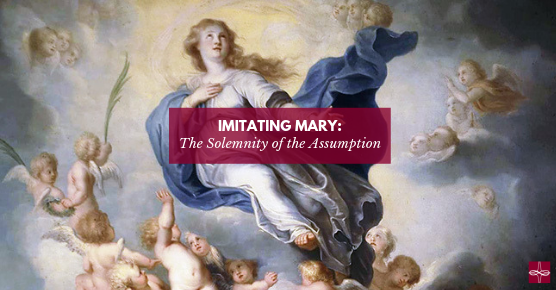





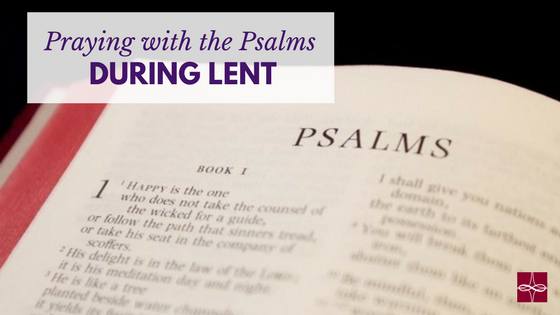

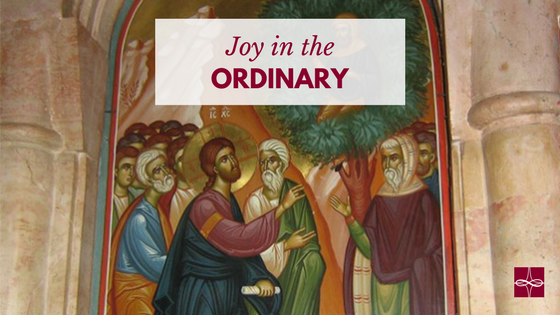

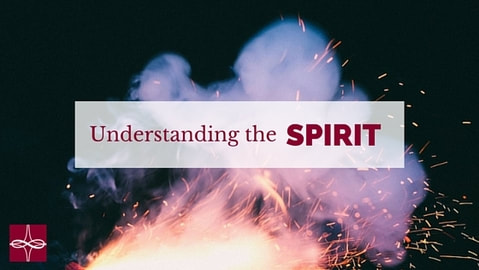

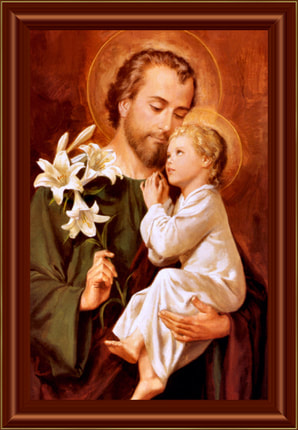
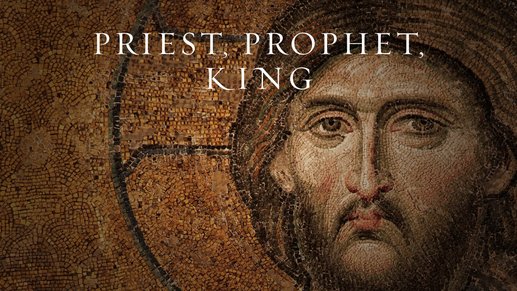



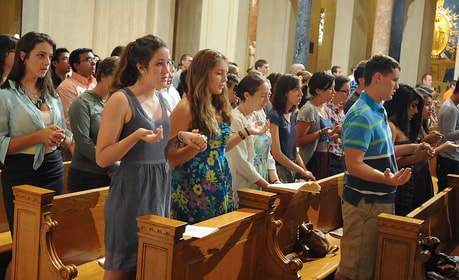



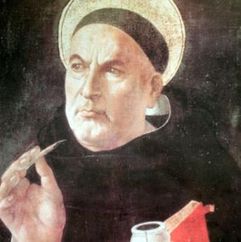

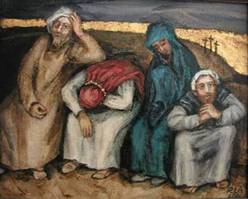

 RSS Feed
RSS Feed